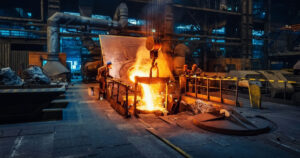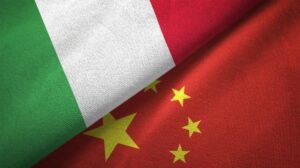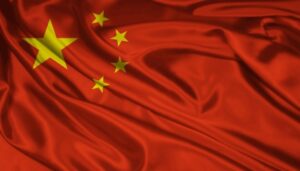
In January-July of this year, Ukrainian mining companies reduced exports of iron ore raw materials (IORM) in physical terms by 8% compared to the same period last year, to 19 million 145,471 thousand tons from 20 million 803,661 thousand tons.
According to statistics released by the State Customs Service (SCS) on Tuesday, foreign currency earnings from exports of iron ore raw materials decreased by 20.3% during this period, to $1 billion 460.316 million from $1 billion 831.314 million.
Raw materials were exported mainly to China (43.67% of shipments in monetary terms), Slovakia (17.9%), and Poland (16.82%).
In addition, in January-July 2025, Ukraine imported raw materials worth $58 thousand in the amount of 86 tons from Italy (40.35%), the Netherlands (36.84%), and Norway (22.81%), while in the same period last year it imported 771 tons worth $208 thousand.
As reported, in 2024, Ukraine increased its exports of raw materials by 89.8% compared to 2023, to 33 million 699.722 thousand tons, and foreign exchange earnings grew by 58.7%, to $2 billion 803.223 million.
In 2024, Ukraine imported mineral resources worth $414,000 in a total volume of 2,042 tons, while in 2023, 250 tons of these raw materials were imported worth $135,000.
In 2023, Ukraine reduced exports of raw materials in physical terms by 26% compared to 2022, to 17 million 753.165 thousand tons. Foreign exchange earnings amounted to $1 billion 766.906 million (a decrease of 39.3%).
Raw materials worth $135,000 were imported, totaling 250 tons.

Egypt has signed an agreement with China’s Sailun Group to build a car tire plant in the Suez Canal Economic Zone (SCEZ) with a total investment of $1 billion, according to a cabinet statement. The construction of the plant will take three years. The first phase is scheduled for completion in 2026.
The plant will eventually produce 10 million tires a year, Reuters quoted the government as saying.
The EZSC is a complex of six ports and four industrial zones located along or near a strategic waterway. The Egyptian government has granted the zone special legal and tax incentives. Meanwhile, the country is investing heavily in infrastructure to attract investors to the EZSC.

The Italian government plans to restrict the presence of Chinese investors in key companies to avoid possible tensions in relations with the US, Bloomberg reports, citing informed sources.
The plans concern companies that the government considers strategic, both private and state-owned, the sources said. One of the most notable examples is Italian tire manufacturer Pirelli & C. SpA, 37% of which is owned by Chinese state-owned Sinochem International Corp.
Earlier this year, Pirelli stripped the Chinese investor of its management control after facing the threat of sales restrictions in the US, its main market. As reported, Washington has banned the import or sale in the country of connected cars that use Chinese equipment or software.
Sinochem insists that its investment in Pirelli is long-term, while Rome is considering options to pressure the Chinese investor to sell its stake, sources say.
The situation surrounding Pirelli shows the difficulties Europe faces in the new geopolitical reality. The region welcomed Chinese investors after the 2008 financial crisis, but now seeks to reduce its dependence on Beijing in order to protect strategic industries and maintain good relations with US President Donald Trump.
Among other companies from which Italy would like to oust Chinese investors is CDP Reti SpA, which controls the country’s power grids, sources say. A subsidiary of State Grid Corporation of China owns 35% of CDP Reti and has two seats on its board of directors.
Another example is power plant manufacturer Ansaldo Energia SpA. Although Shanghai Electric has already reduced its stake in the company from 0.5% to 40%, the very presence of a Chinese investor prevents the company from participating in a number of tenders and competitions in the US energy market, according to one of the sources.
In total, about 700 Italian companies have Chinese investors, but the government is mainly focused on large firms in strategic sectors, including energy, transport, technology, and finance.

The Chinese authorities will impose a temporary duty of 75.8% on imports of canola seeds (a type of rapeseed) from Canada starting August 14, according to the Xinhua news agency.
This decision was made following an anti-dumping investigation launched in September 2024.
The Ministry of Commerce preliminarily concluded that rapeseed imports from Canada were dumped, that the domestic rapeseed industry suffered material damage, and that there is a causal link between dumping and actual damage.
In this regard, it was decided to introduce temporary anti-dumping measures in the form of safeguard payments.
Quotations for November canola futures on the ICE exchange fell by more than 4% to $650.3 per tonne after the announcement of import duties, according to Reuters.
China is the world’s largest importer of canola and Canada’s main buyer. In 2024, Canada supplied canola worth about $3.6 billion to China.

China has called on the international community to focus on real mediation to achieve peace in Ukraine instead of wasting time on discussions.
“Over the past seven days, the Ukrainian issue has been the subject of three Council meetings. While we are spending time and energy on further discussions of this issue in the Council, we should invest more time and energy in mediation and promoting peace talks,” said Chinese Deputy Permanent Representative to the UN Geng Shuang during an emergency meeting of the UN Security Council initiated by Ukraine after a massive missile and drone strike by Russia on the night of July 31.
China stressed that the crisis in Ukraine is in a critical phase and called on all parties to make every effort to de-escalate and return to the political process. In particular, the Beijing representative outlined three key steps: prioritizing humanitarian needs and protecting civilians, immediate de-escalation on the battlefield to allow for meaningful negotiations, and an active role for the international community in creating conditions for dialogue.
The Chinese side stressed that it would continue to promote the settlement, guided by the four principles formulated by Chinese President Xi Jinping.
As reported, Ukraine initiated an emergency meeting of the UN Security Council in response to the latest escalation of terror by Russia, which led to the death of people and destruction in Kyiv.
As of now, at least 31 civilians, including five children, are known to have been killed in the attack on Kyiv on July 31. Another 159 civilians, including 16 children, were wounded in the capital.

Foreign direct investment (FDI) in mainland China’s economy fell by 15.2% in the first half of the year compared to the same period last year, to 423.23 billion yuan ($59 billion), according to the Ministry of Commerce.
The manufacturing sector attracted 109.06 billion yuan, while the service sector attracted 305.87 billion yuan.
At the same time, FDI from ASEAN countries grew by 8.8% in January-June, from Switzerland by 68.6%, from Japan by 59.1%, from the UK by 37.6%, from South Korea by 2.7%, and from Germany by 6.3%.
As reported, FDI fell by 27.1% in 2024 to 826.25 billion yuan. This is the largest decline in the history of calculations (since 2008).